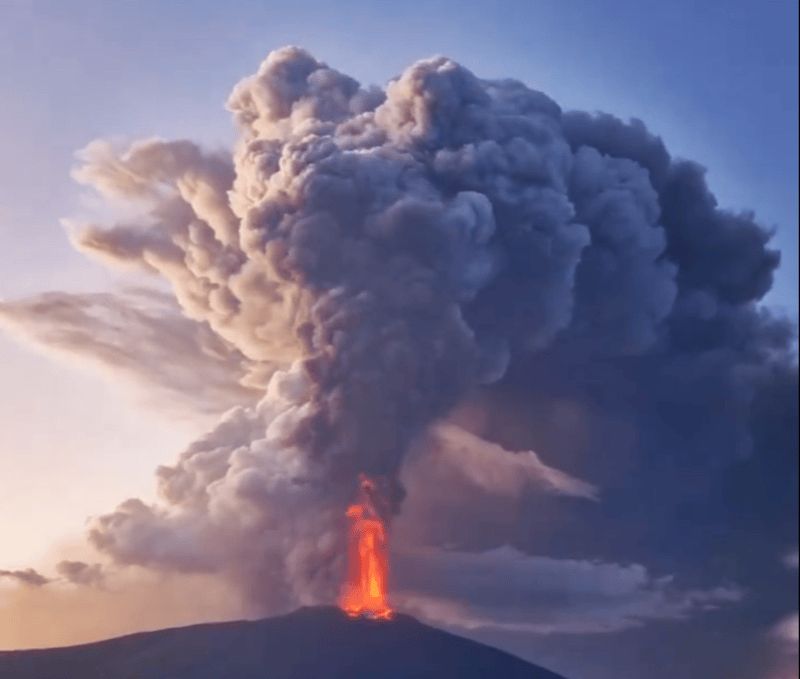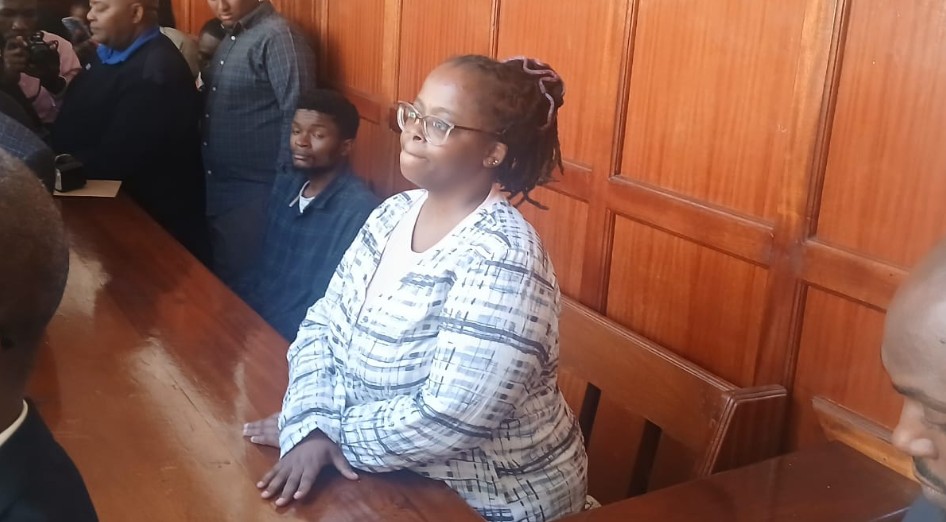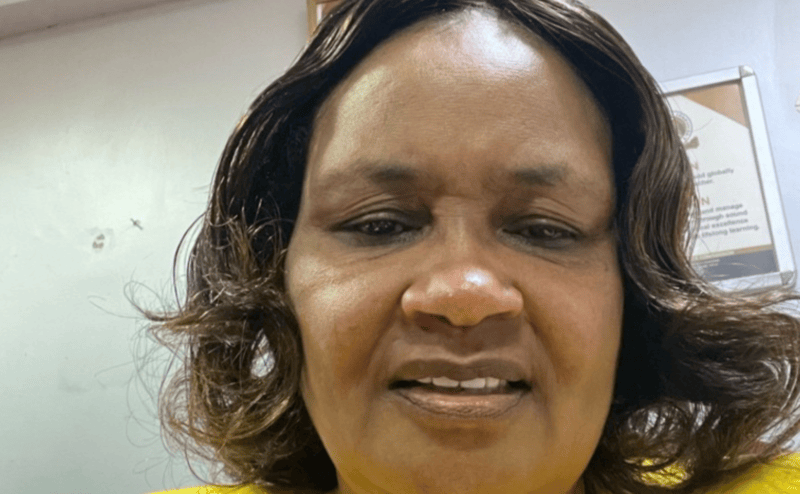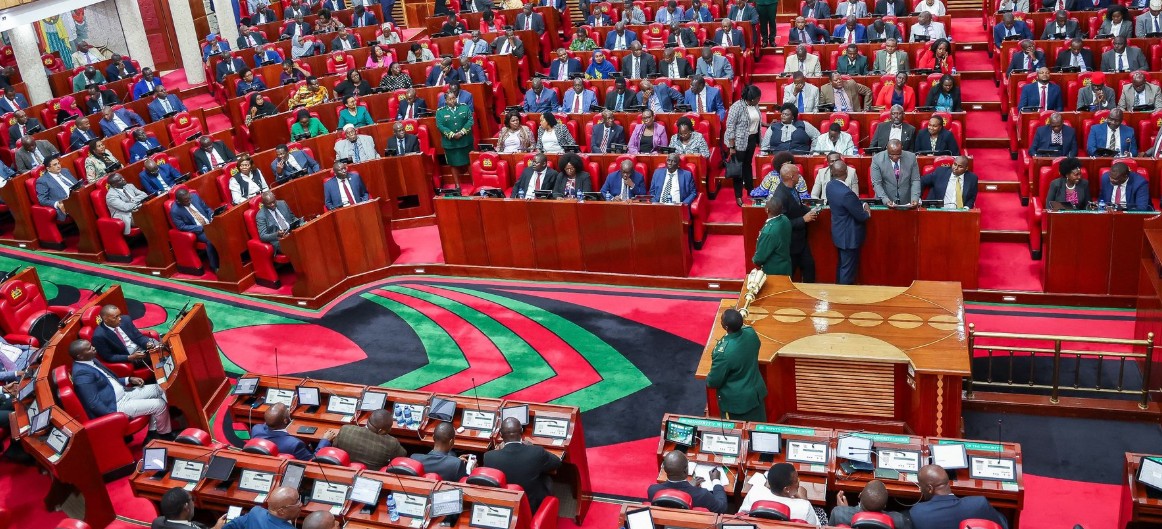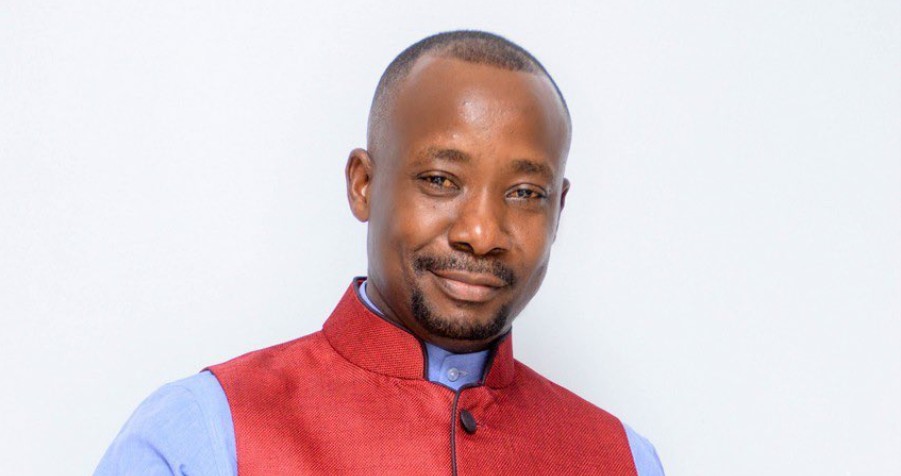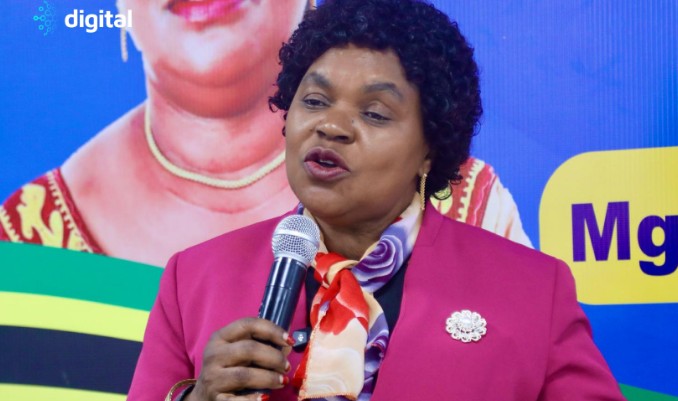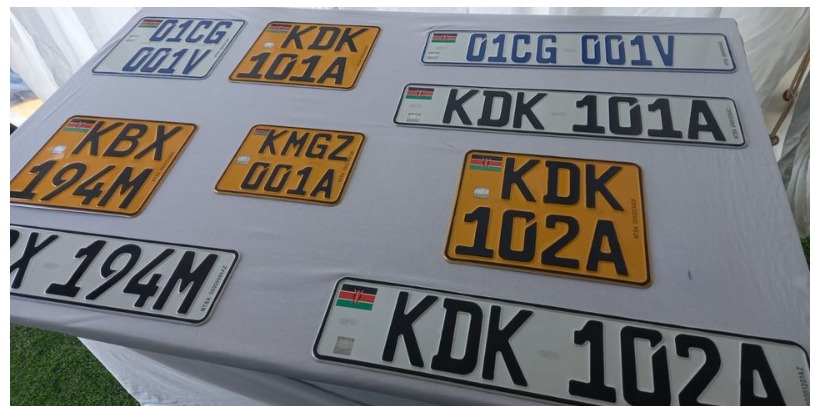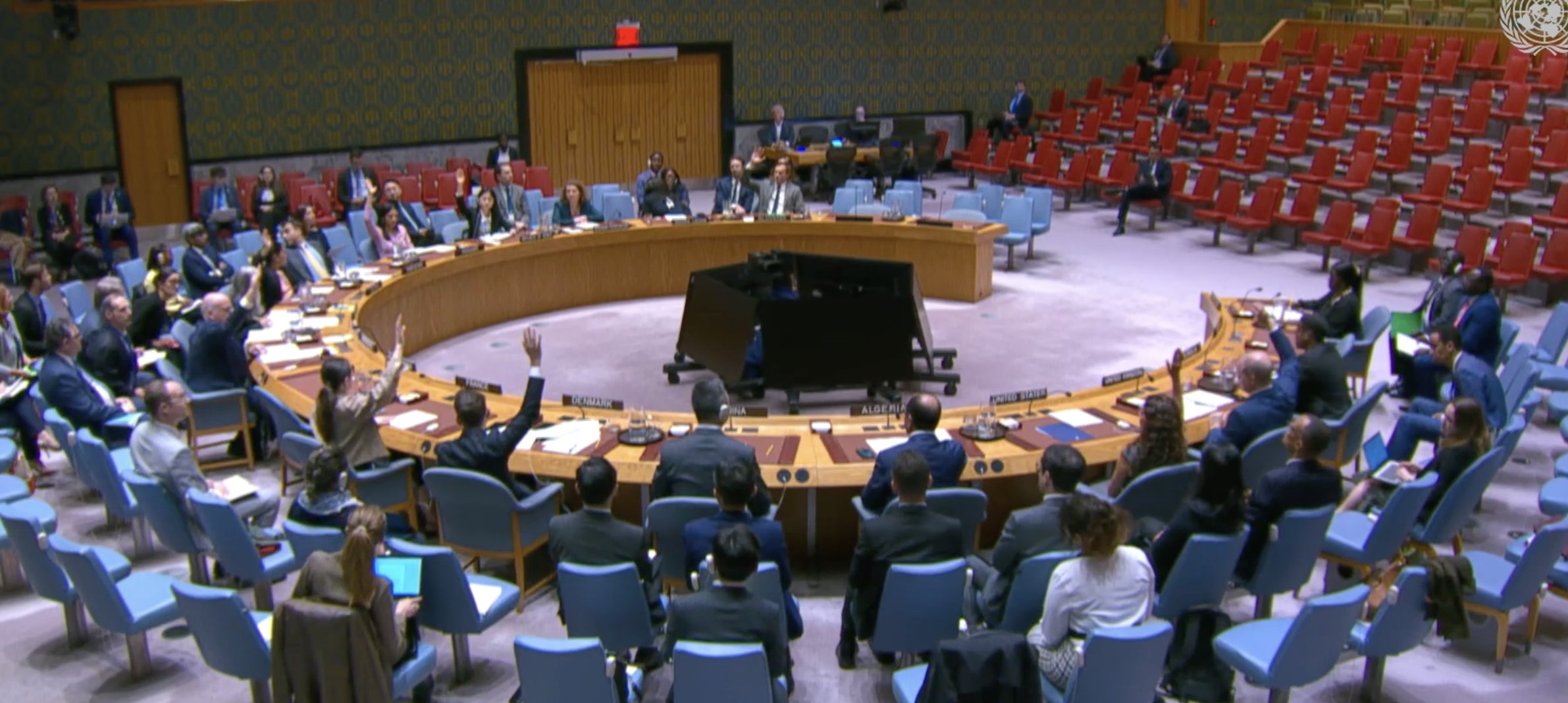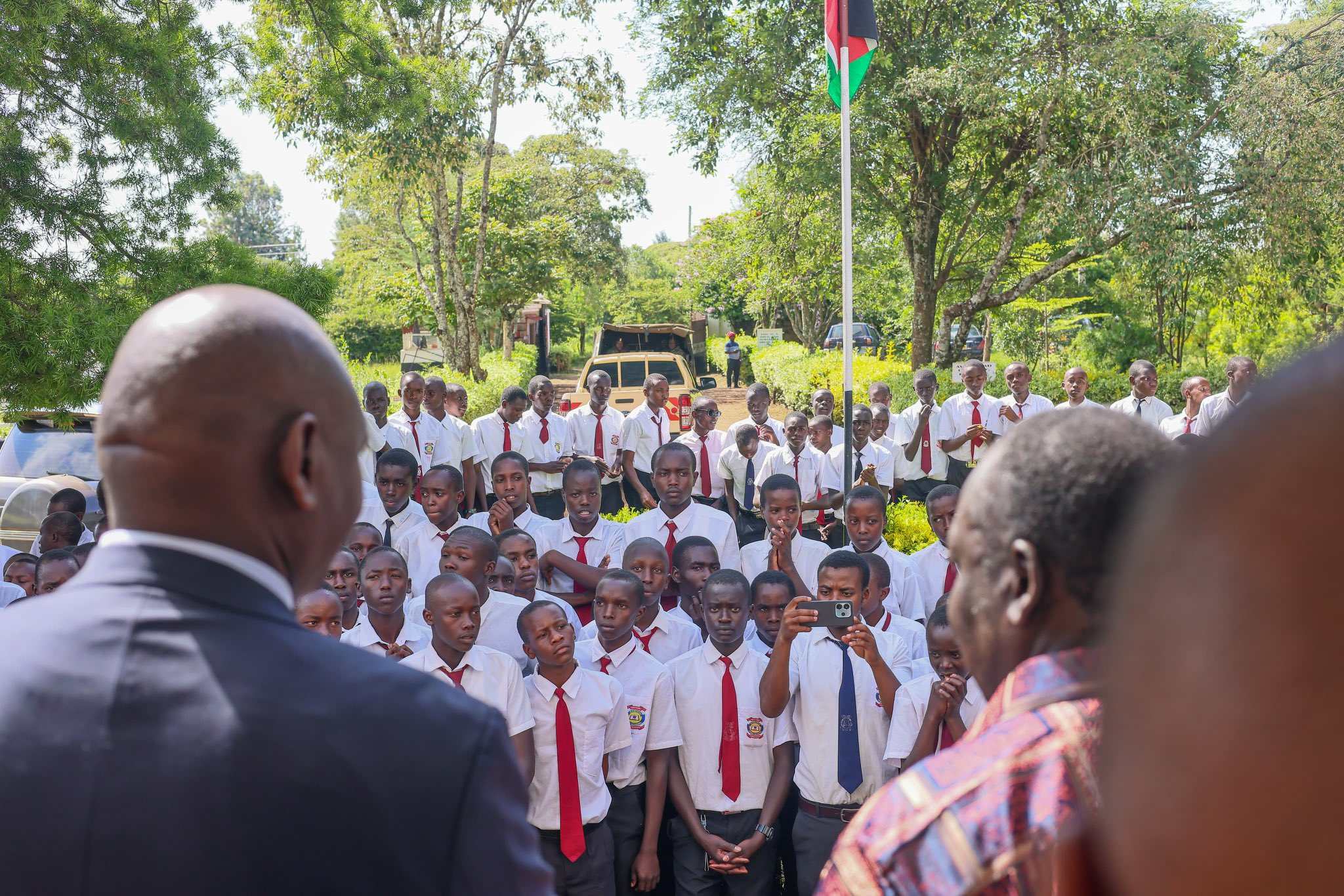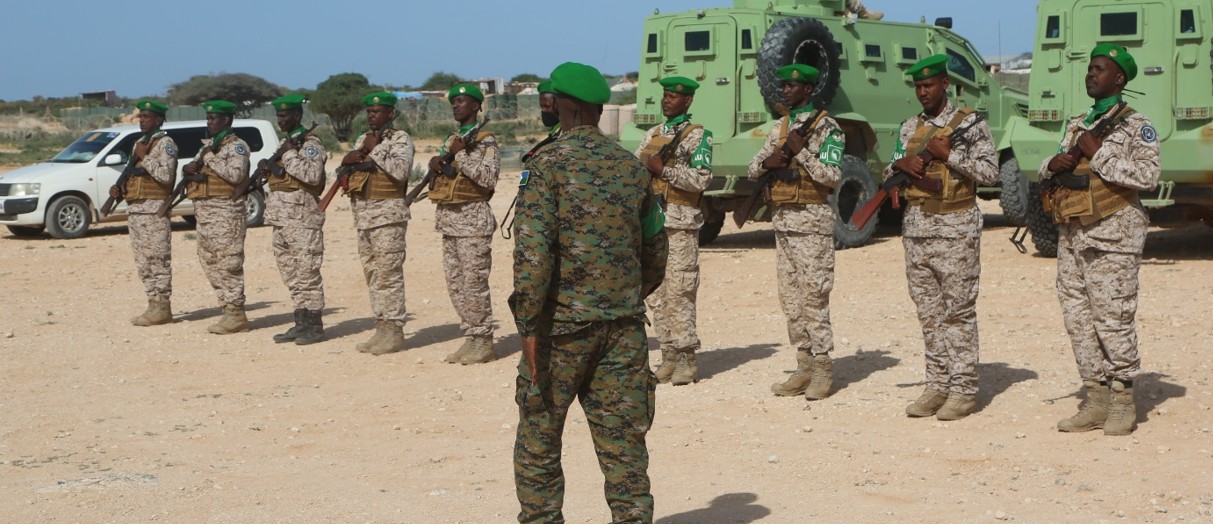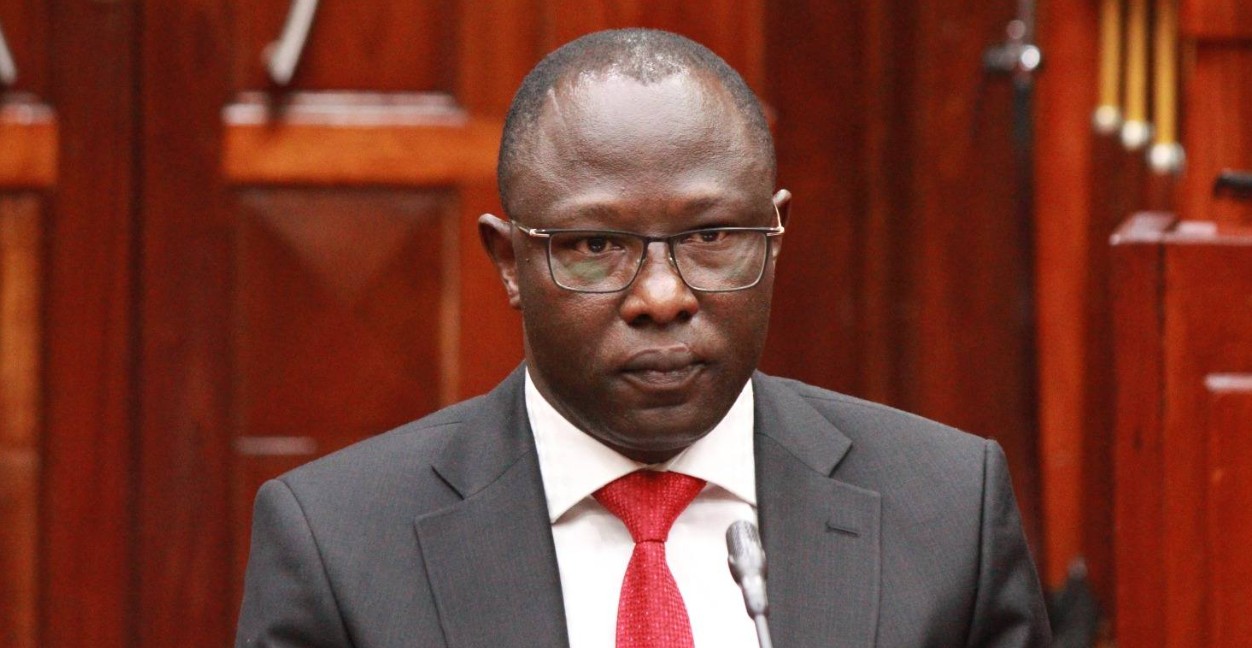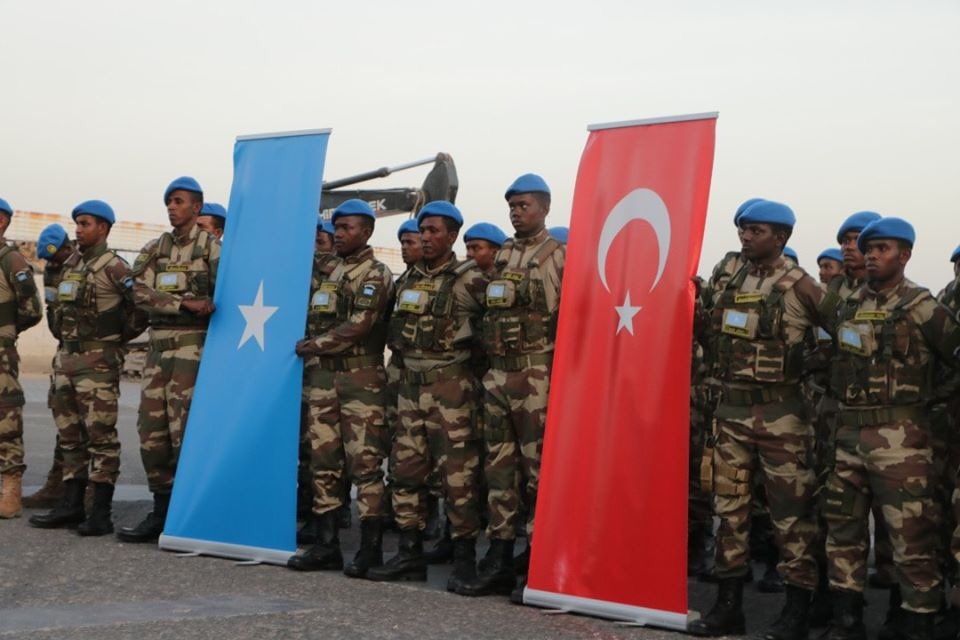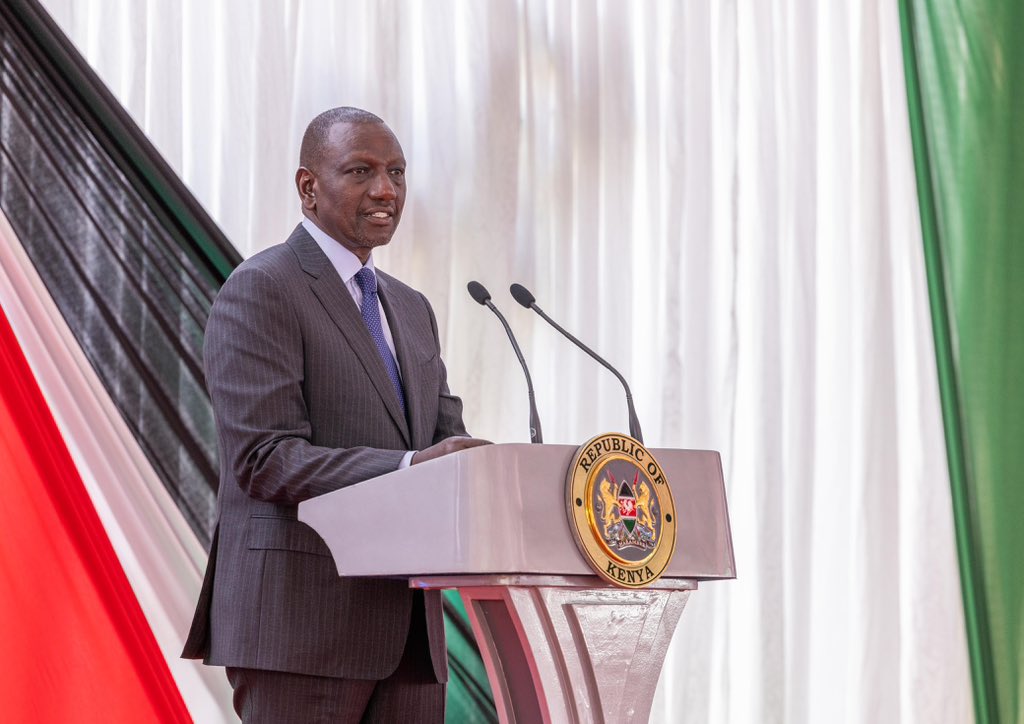Migingo, Karamoja tensions resurface during Maangi's vetting
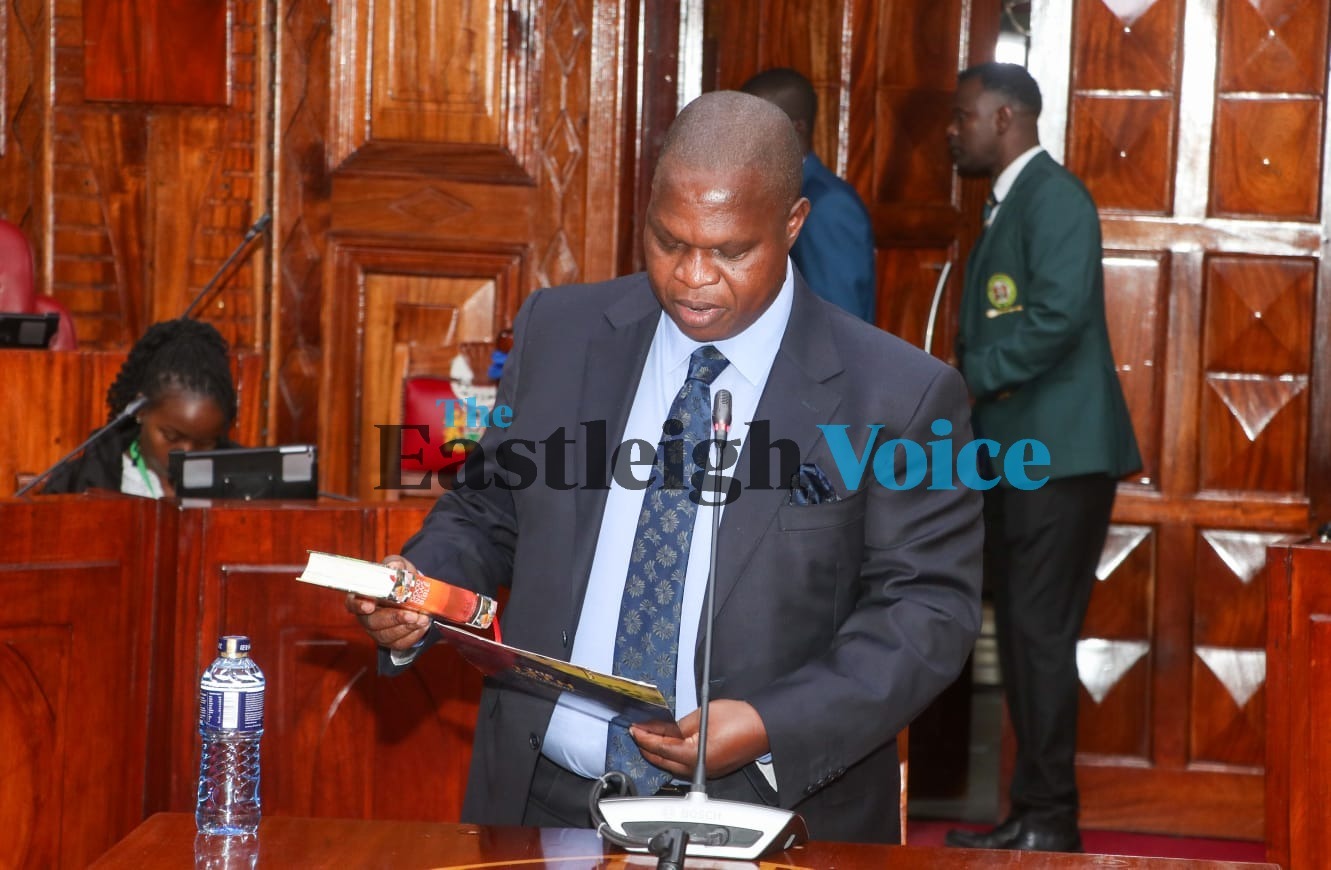
Maangi, a former Kisii Deputy Governor, was questioned by members of the influential defence, intelligence, and foreign relations committee about what steps he plans to take to ease tensions over the Migingo issue and ensure Kenyan fishermen are no longer harassed and mistreated by Ugandan police.
The long-standing Migingo Island territory dispute between Kenya and Uganda, which has caused suffering for residents since 2004, resurfaced during the vetting of Kenya's nominee for High Commissioner to Uganda, Joash Maangi, on Thursday.
Migingo Island covers less than half a football pitch but more than 500 people, according to the Ugandan police, live in less than 2,000 square metres area.
More To Read
- Muhoozi praises Uganda MPs for passing controversial Bill allowing military trials for civilians
- Migingo residents demand govt release of 2009 boundary survey report
- Ugandan President Museveni endorses Raila for AUC top job, takes a jab at Djibouti's candidate in Nairobi speech
- Kenyan High Commissioner presents credentials amid Uganda House fire investigation
The rock island, with its poorly constructed huts, a tiny port, some bars, a brothel and an open-air casino, has for long been heavily contested by Kenya and Uganda both claiming ownership.
Maangi, a former Kisii Deputy Governor, was questioned by members of the National Assembly's Defence, Intelligence, and Foreign Relations committee about steps he plans to take to ease tensions over the Migingo issue and ensure Kenyan fishermen are no longer harassed and mistreated by Ugandan police.
"You come from Kisii, which is never very far from the places neighbouring Migingo sland. What prowess or criteria are you going to use to make sure that the disputes that involve Kenyan fishermen and Ugandan policemen now and then are going to be solved amicably and we won't have more inhuman sufferings?" posed the Imenti Central legislator, Moses Kirima.
He said talks concerning "demarcation of the disputed island have been active and he will fast-track through using the accepted channels".
"Uganda is our neighbour. It is not a country we can wish away and neighbours have issues that will always crop up. The two countries have established joint commissions, including one on joint boundaries. This is active and the demarcation has been done. One of the areas that will be dealt with by the commission is the Migingo issue and I would request that we leave it to them," he said.
In 2016, Nairobi and Kampala created a joint committee to determine the border relying on maps dating from the 1920s. However, the committee has not produced any results.
Last May the parliamentary committee on regional integration called for addressing security concerns in Migingo.
Abdi Dubart, the Principal Secretary for EAC Affairs, told members that the island conflict between the two neighbours was a conflict over fisheries resources especially the rich Nile Perch fishing grounds off the island which fishermen from either side want to access due to historical and cultural reasons.
Another sensitive issue that emerged boldly was the Karamoja conflict, a communal violence issue pitting pastoralist groups in the Karamoja region extending over the Kenya-Ugandan border.
Pastoralists from this region have been engaged for centuries in cycles of reciprocal livestock raiding, involving inter-communal armed violence.
Maangi was queried on what solution he would bring to end the violent frictions.
In response, he said Kenya and Uganda share the longest border line and a Joint Ministerial Commission is handling the case.
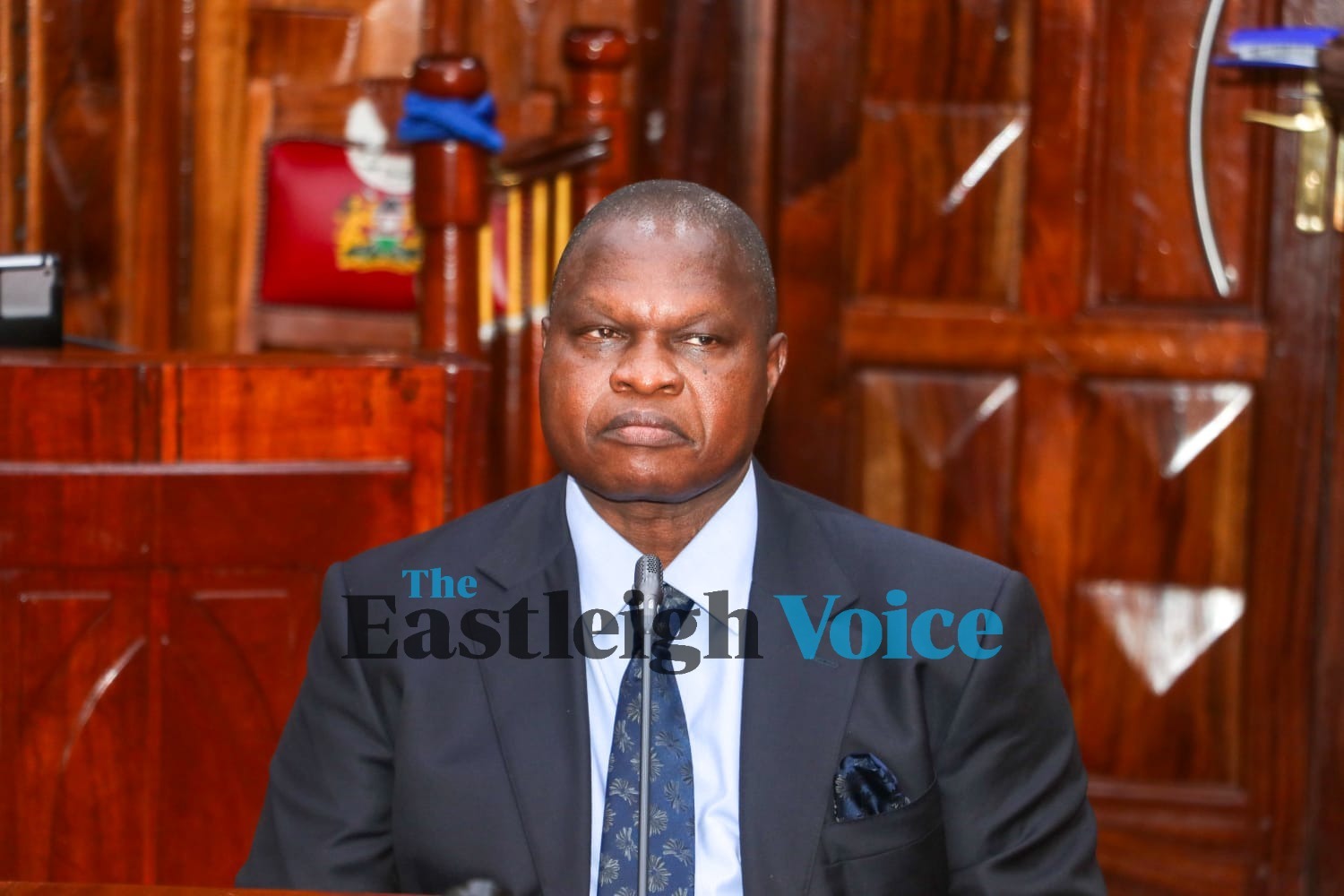 Joash Maangi appears before the National Assembly Defence, Intelligence and Foreign Relations Committee for vetting for the position of Kenya High Commissioner to Uganda on April 4, 2024. Photo: Justine Ondieki
Joash Maangi appears before the National Assembly Defence, Intelligence and Foreign Relations Committee for vetting for the position of Kenya High Commissioner to Uganda on April 4, 2024. Photo: Justine Ondieki
He noted that Kenya and Uganda have an agreement on improving the lives of the Karamajong people and enhancing their livelihoods through collaborative efforts.
"Kenya and Uganda are working together to provide the pastoralists in Turkana with a sustainable source of livelihood so that, when we have a scarcity of land or grasses, people won't suffer," Maangi told the grilling body.
But President Museveni in May last year issued a demand letter that Kenya hand over for trial Turkana herders, who allegedly killed five Ugandans in the volatile northeastern Karamoja region in March 2022.
Through an executive order No.3 of 2023, issued on May 19, to end illegal guns making their way into Uganda, the veteran leader gave the Turkana a six-month ultimatum to comply with the directive, short of which he would expel all Turkana and their herds from Uganda soil.
"This is an issue being handled by the Joint Ministerial Commission and I believe it's a good venture. It should be handled on a very regular basis. One of our cardinal pillars in our foreign policy is peace and I believe that as a High Commissioner, I will work hard to ensure it is implemented," said the former Kisii Governor.
Those killed in the raid by suspected Turkan cattle rustlers included three geologists from the Ministry of Energy and one Uganda's People's Defence Forces officer.
President Museveni described the Turkana issue as "another destabilising factor" in his efforts to disarm the Karamojong warriors and keep secure the region that borders Kenya to the northwest.
Last October during the vetting of the Kenyan ambassadorial nominee to Ethiopia, George Orina, the case of 41 Kenyans from pastoralist communities who were imprisoned in Uganda resurfaced, after Gilgil MP Martha Wangari questioned the nominee on why these individuals were still incarcerated and whether Kenya had failed in negotiations with the Ugandan government.
Orina, who at the time of vetting was then outgoing Director General of political and bilateral affairs at the foreign office explained that it was an unfortunate incident where Kenyan herders had crossed into Uganda while armed, leading to their arrest.
They were prosecuted under existing Ugandan laws and tried by a court-martial, resulting in their imprisonment.
He stressed that the most appropriate action would be to seek a pardon from the highest authority in Uganda to resolve this specific case. The issue remains a source of diplomatic concern between Kenya and Uganda.
The former deputy governor, Maangi, faced intense scrutiny over allegations of corruption and questions about his integrity. Despite being investigated by the Ethics and Anti-Corruption Commission, Maangi was not charged, leading to doubts and concerns voiced by several members of parliament.
"Being a high commissioner is such an important role; why would you not step aside and clear your good name before being appointed?" Kamkunji MP Yussuf Hassan posed.
In response, Maangi vehemently defended his innocence, attributing the investigation to political vendettas following the last general elections. "I am 100 per cent sure that I am innocent; this was some kind of witch hunt," he asserted. "I am a good citizen in good standing and ready to serve; I have not been charged in any court of law."
However, the committee remained sceptical, particularly regarding Maangi's financial disclosures. Members expressed surprise at the significant increase in his net worth over the past year, which Maangi attributed to a one-time payment that had been pending for some time.
"I said exactly what I made last year; there was a little bit of a hike because I was paid what I was owed over a period of time, which was a one-off lump sum payment," Maangi clarified.
Further questions arose about Maangi's property holdings, with the former deputy governor explaining that some properties, including residences in Kisii, Nairobi, and Minnesota, were not income-generating assets.
Top Stories Today
